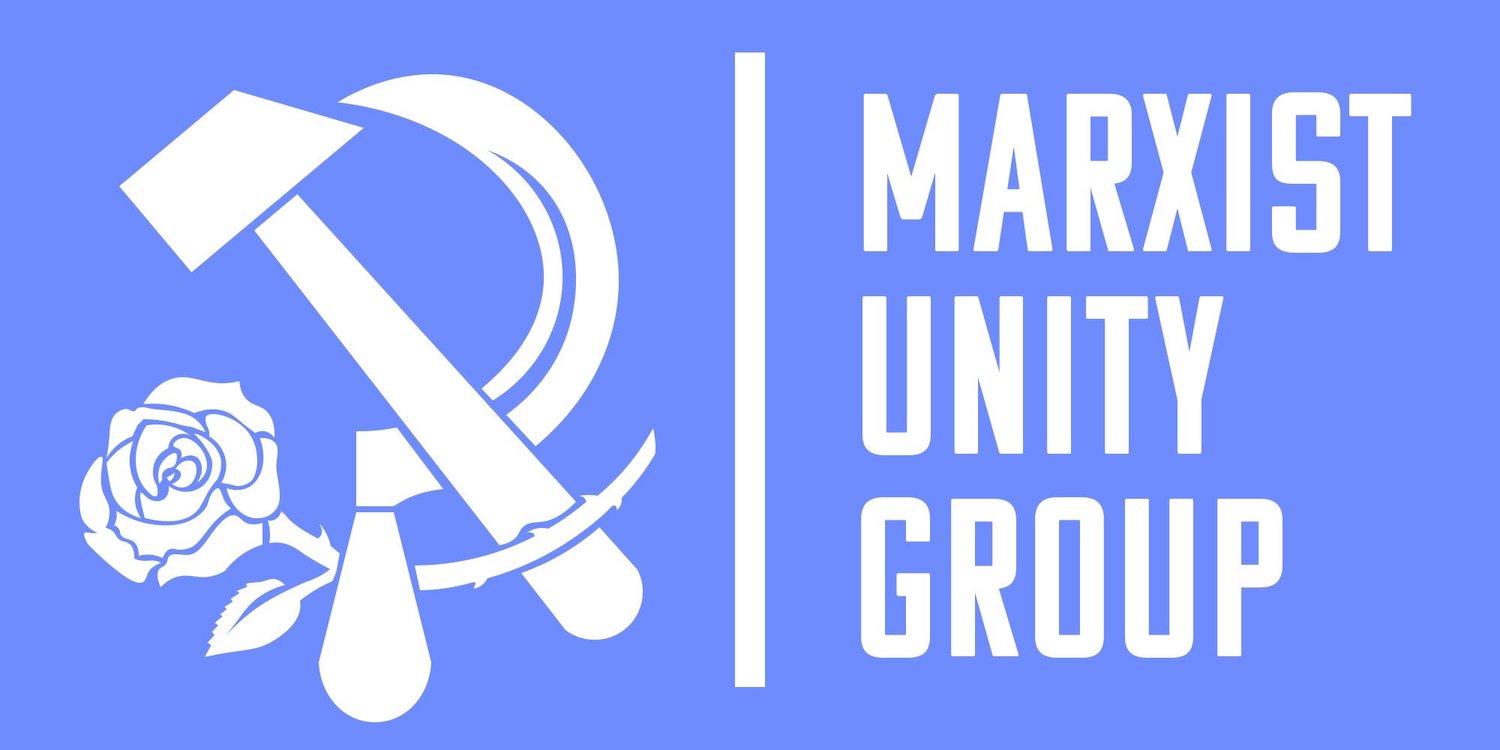MUG on the NPC Vol. 3: It’s Raining Comrades
Sup Comrades, welcome to MUG on the NPC Vol 3!
The November 4-5 NPC meeting was our first time seeing each other in person since convention. Being in person allowed us to deepen our comradery, from picking Luisa’s brain on Third Worldism before taking a picture in front of the famous precinct burned down in the 2020 uprising to a beautiful rendition of It’s Raining Men coming from the two most divided blocs!
Since we were in person, we structured meetings to focus less on business and more on broader political conversations. Given the shift to a retreat-style meeting, this MUG on the NPC will also shift from our traditional format that centers our perspectives in isolation. Instead, we’ll share our reflections about how we relate to what our peers had to say this weekend.
On Palestine Solidarity & Areas of Anti-Imperialist Unity on the NPC
Comrade Laura from B&R led our Palestine solidarity conversation around the different audiences DSA targets in our work as one of the central divides. Through this, three strands of vital perspectives we agree with became apparent:
We agree with Ahmed from the Anti-Zionist Slate that DSA should prioritize merging the socialist movement and the most advanced segments, or those with the most ideological proximity to socialism, of the pro-Palestine movement. We agree with this orientation because it will allow us to grow with both efficiency and diversity, while simultaneously creating the conditions to build a pro-Palestine working class that is more expansive than the existing Democratic Party base we often target. The most advanced elements are likely to be found leading or participating in direct actions, from mass demonstrations to Block the Boat-like disruptive actions.
Given this focus on the most advanced segments of the pro-Palestine movement and their presence in direct actions like demonstrations, we agree with the critical assessment Luisa provided when she highlighted that we didn’t have a speaker at the historic march on Washington last weekend. We also agree with her assessment of why—our disunity with many of the most advanced pro-Palestine movement organizations in the face of pressure from the Zionist media and propaganda apparatus.
While the direct action leaders of the pro-Palestine movement may not platform us at the moment, we are still able to lead mass advocacy tactics like phonebanks for our endorsed electeds, including Cori Bush and Rashida Tlaib’s ceasefire resolution. These tactics, best demonstrated by campaigns like No Money for Massacres, allow us to reach other advanced elements in the pro-Palestine movement. The opportunity mass advocacy tactics provide is why we agree with the affirmative assessment that our phonebanks have been a resounding success and have demonstrated DSA’s mass pressure campaign capabilities, presented most passionately by numerous comrades in the Groundwork and Socialist Majority NPC Slates.
On Winning The Battle for Democracy and Revolutionary Processes
In addition to the Palestine solidarity conversation described above, we discussed working backward from socialism. In this discussion, we framed socialism as our goal, and everyone provided their perspective on what would need to happen to create the conditions for it.
This session, however, lacked the same structure that helped to highlight the nuances between our different positions, so we want to sketch out our politics using the same structure:
As communists, socialism is not our end goal but a means to transition to a communist society. Therefore, we would structure the conversation by working backward from there rather than from socialism. We would start by mapping the conditions needed for communism to arise to shape our priorities today.
Given our communist horizon, we understand that for communism to arise, it would take an overwhelming change in property ownership from social welfare to the nationalization of industry. These changes are what we would describe as a socialist transition. To facilitate this socialist transition, the working class must conquer political power to defend against capitalist reaction, and adequately make democratic decisions.
It is a dead-end strategy to limit our horizon to conquering power within the existing structure of the anti-democratic republic enshrined by our constitution. Instead, we need to make our immediate horizon winning the battle for democracy by fighting for a democratic republic, established through constituent assemblies.
On Building a Mass Socialist Workers Party with Strong Internal Democracy
We did not discuss internal democracy over the weekend, but we’re highlighting it here because Democracy Commission elections are coming up; therefore, we want to highlight how statements from MUG-endorsed candidates Nick W, and Connell H, related to an article in DSA Mass suggesting we “abandon multi-caucus representation as a necessary measure of how to choose the composition of national working groups and commissions entirely,” and questions, “What is the purpose of caucus diversity in a body that should first and foremost be carrying out the will of the national convention and the organization’s elected leadership?”
Connell addresses why we cannot abandon multi-tendency commissions entirely:
“In examples of DSA at its best, members from different tendencies unite in organizing projects, competing for their political visions while still collaborating on shared work. DSA is unable to function without collaboration across its political spectrum...In order to keep DSA together when it is so easy for people to split or quit, we need structures that maintain the multi-tendency nature of DSA.”
Nick addresses why bodies like the Democracy Commission must be multi-tendency:
“While conflict and serious disagreement over our political visions are inevitable, it is up to the democracy commission to make that conflict productive. This body is a careful balancing act and all the major perspectives on the democracy commission need to be rigorous in our research and analysis, and open-minded when discussing our ideas. I intend to fully fight for a membership-based DSA, but we will be stronger when we find common ground where we can.”
These are not just the perspectives of these comrades as individuals, but were enshrined by our caucus at our annual Congress.
